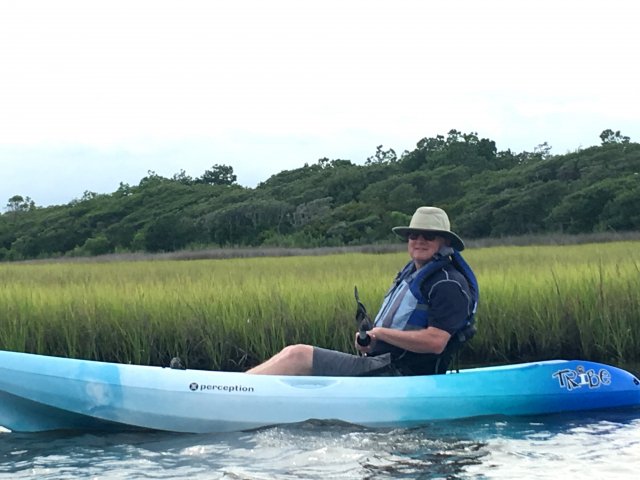Meet EPA Environmental Engineer Joseph Wood

Joseph works in EPA’s Center for Environmental Solutions & Emergency Response. His research focuses primarily on the development, testing and evaluation of technologies for the decontamination and disposal of materials contaminated with biological agents and biotoxins.
When did you first know that you wanted to be a scientist?
I have always liked science, but my seventh-grade science teacher really got me into the subject. Around that time, I did a science fair project with a friend and we won first place. In high school, I was good at math and science, and I thought that I would try to major in engineering in college because I had some relatives that were in that field.
Tell us about your background.
I have a bachelor’s degree in civil engineering with a focus in environmental engineering from Purdue University, and I have a master’s degree in environmental engineering from the University of Illinois, Champaign Urbana. Between getting these two degrees, I spent two years in Ecuador with the Peace Corps, designing and managing construction of potable water and sewer systems for small towns. I am also a registered professional engineer. I’ve been with the EPA since 1991, and with EPA’s Office of Research Development since 2005.
How does your science matter?
My science and engineering supports EPA’s homeland security responsibilities. Among other areas, we are trying to prepare EPA to be able to handle and respond to a large-scale biological agent attack. My research deals mostly with developing decontamination techniques for biological agents. The research that we’re doing, even though it’s geared for homeland security, has applications for other fields as well.
Can you talk about any recent projects?
I evaluate a lot of different decontamination techniques in the lab. I am currently leading a project to evaluate electrostatic sprayer properties as they relate to application of disinfectants to kill the SARS-CoV-2 virus (aka Coronavirus).
What do you like most about your research?
I get to work with a lot of great and smart people. We work with the U.S. Department of Homeland Security, Department of Defense, and many folks within different parts of EPA. The work involves working with scientists of many different disciplines—microbiologists, chemist and engineers, etc. I also get to work on a variety of different projects and am responsible for projects from beginning to end.
If you weren’t a scientist, what would you be doing?
At one point in my career, I thought about going back to school to get a law degree. I could’ve combined that with my technical degree and done something like intellectual property law. My dad was a lawyer and I could have followed in his footsteps, but alas I just stayed too busy at EPA.
If you could have one superpower, what would it be and why?
I would choose to have the ability to time travel so that I could see what life was like in the past and what it’s going to be like in the future.
Any advice for students considering a career in science?
The main advice I have is that it’s going to be hard at times and you just need to stick with it. Also, as a scientist you need to be able to communicate your findings. You need to be able to speak well and write well. That’s something that people forget you need to know in the sciences—it doesn’t do any good if you discover something, but you don’t know how to tell people about it.
What do you think is the coolest scientific discovery?
I have always been most impressed by the type of discoveries that were paradigm shifting and met with a lot of resistance at the time. The scientist had to persevere and continue to make their case even if it went against all the conventional wisdom of that period. There are all sorts of scientists with discoveries that people initially didn’t believe in and it took a while for people to start to believe. Copernicus is just one good example.
Whose work in your scientific field are you most impressed by?
Peter Setlow. He’s done a ton of work in the field of bacteriology, mostly explaining the mechanisms involved with how disinfectants inactivate bacteria. Also, the environmental engineering professor Marc Edwards, from Virginia Tech.
You’re stranded on desert island; how would you use your science to survive?
The first thing would be to figure out how to get safe drinking water. If there was no potable water on the island, then I would have to figure out a way to get drinking water from the ocean.
Editor's Note: The opinions expressed herein are those of the researcher alone. EPA does not endorse the opinions or positions expressed.
